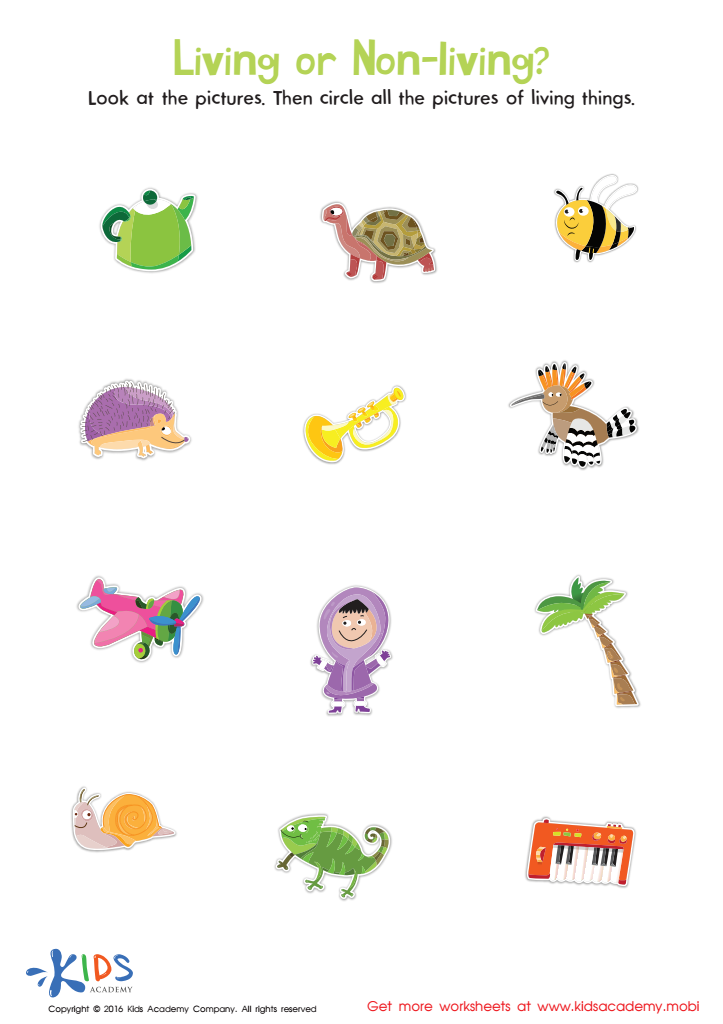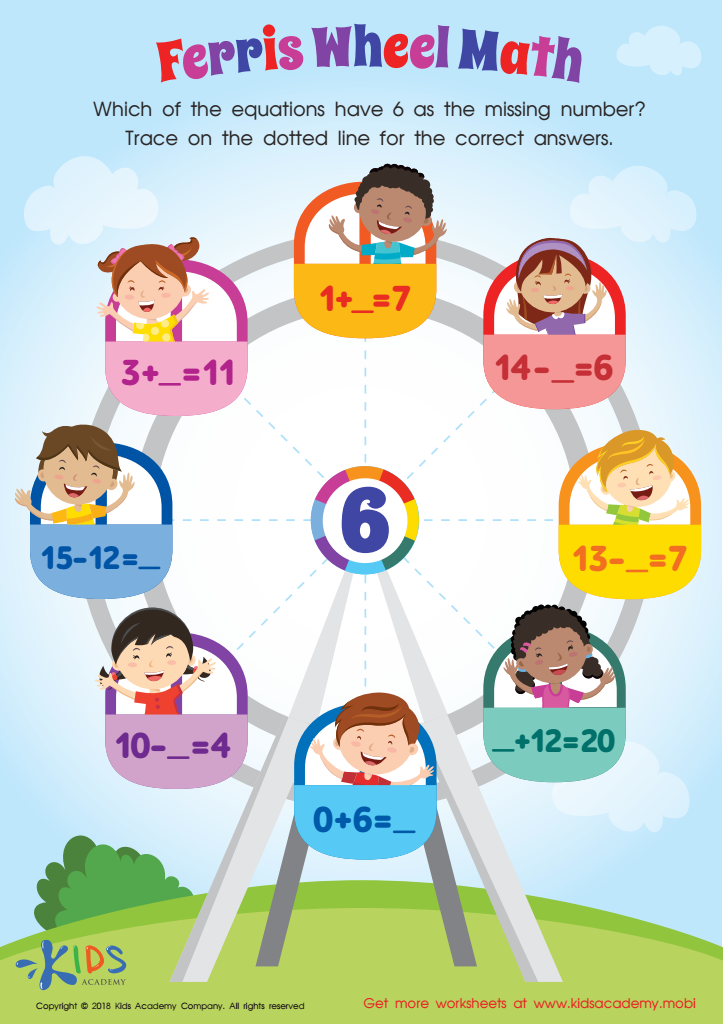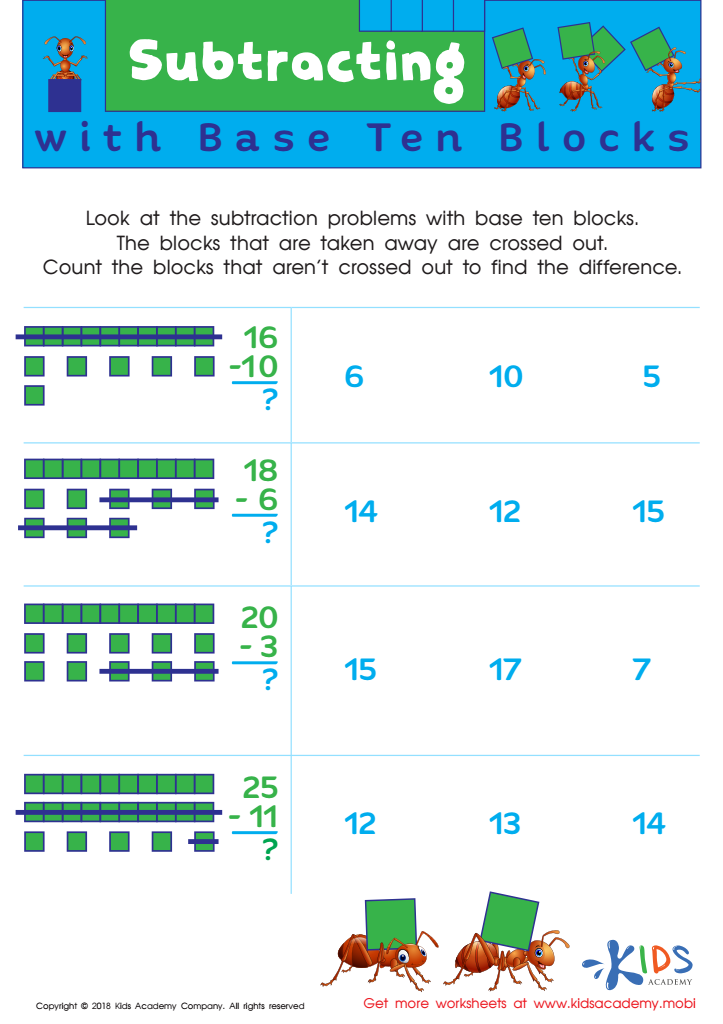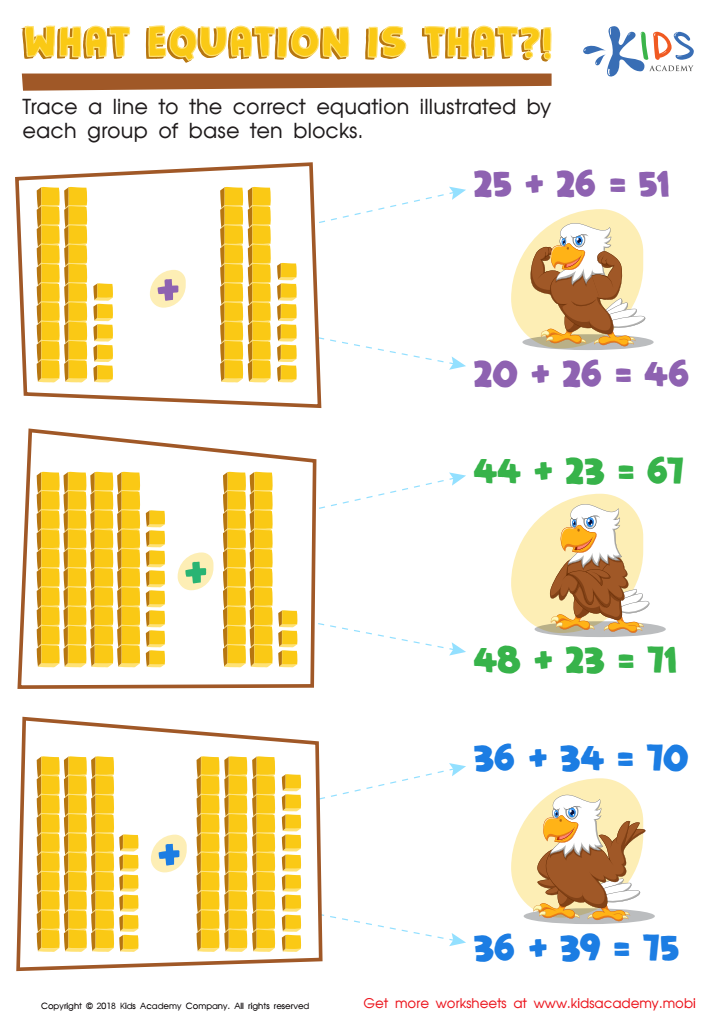Enhancing critical thinking Math Worksheets for 6-Year-Olds
4 filtered results
-
From - To
Discover our engaging math worksheets designed to enhance critical thinking skills for 6-year-olds! These interactive resources encourage young learners to explore mathematical concepts through problem-solving and logical reasoning. Each worksheet is tailored to spark curiosity, allowing children to tackle challenges that promote deeper understanding and creativity in mathematics. Our thoughtfully designed activities cover various topics, ensuring a well-rounded approach to mathematical learning. With colorful visuals and fun scenarios, children will enjoy practicing critical thinking while building a solid foundation for future math success. Perfect for both classroom use and at-home learning, our worksheets are a valuable tool for developing confident, capable mathematicians!


Identifying Living and Non–living Things Sorting Worksheet


Missing Number: Ferris Wheel Math Worksheet


Subtracting with Base Blocks Worksheet


What Equation Is That? Worksheet
Enhancing critical thinking in math for six-year-olds is crucial for several reasons. Firstly, early exposure to critical thinking skills fosters a growth mindset, encouraging children to see challenges as opportunities to learn. At this age, children are naturally curious, and cultivating their ability to think critically promotes exploration and inquiry, which is essential for mathematical understanding.
Additionally, critical thinking in math helps children develop problem-solving skills that are applicable not only in mathematics but across various contexts in their lives. When children learn to analyze situations, identify patterns, and create strategies for solving problems, they become proficient at making informed decisions.
Furthermore, developing these skills early lays a strong foundation for future academic success. Children who engage in critical thinking find it easier to tackle more complex concepts as they progress in their education. Teachers and parents play a pivotal role in nurturing this skill set by providing engaging activities, encouraging questioning, and facilitating discussions that promote reasoning and logic.
Ultimately, investing time in enhancing critical thinking in math supports children's overall cognitive development and prepares them not just for academic challenges, but for real-life problem-solving situations they will encounter as they grow.
 Assign to My Students
Assign to My Students















